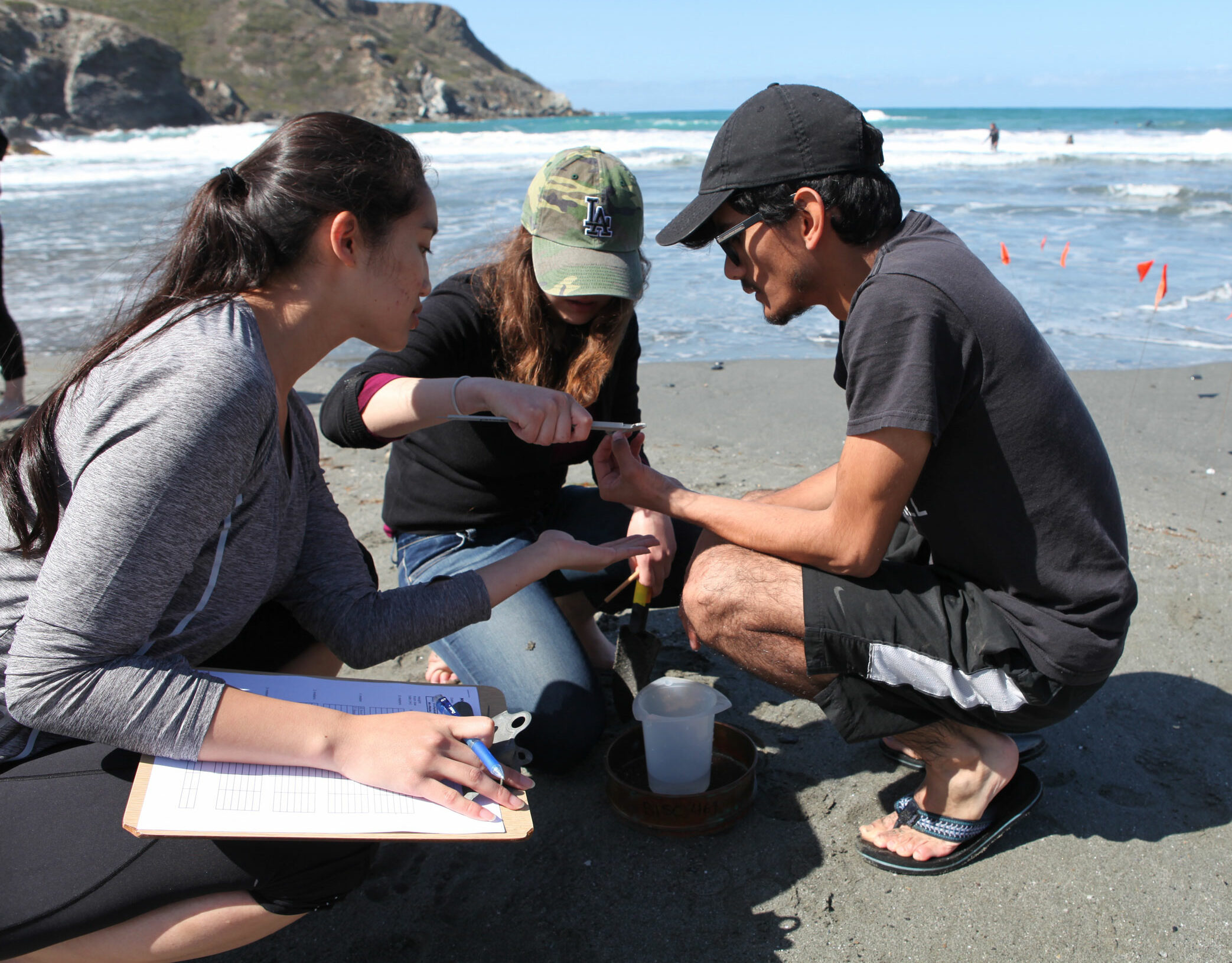Maymester
Immerse Yourself in Sustainability
The Wrigley Institute Maymester on Catalina Island is an experience like no other!
Earn a semester’s credit in just four weeks as you train to become a next-generation environmental leader. All courses and activities take place in our unique, interdisciplinary learning environment at the Wrigley Marine Science Center on pristine Santa Catalina Island.
Registration for Maymester 2024 is now closed. Please sign up for our interest form to get notified about when Maymester 2025 registration opens.

How it Works
All students who enroll in one of our designated Maymester courses spend the full four weeks completing an immersive living-learning experience on Catalina Island. In addition to participating in their core classes, students engage in a variety of interdisciplinary activities designed for the whole group. Covering the social and natural sciences and the humanities, opportunities include problem-solving sessions, field research, recreation, and special events designed to train students in environmental leadership.
Note: Maymester is included in spring semester tuition, but this experience has out-of-pocket costs associated with room and board on Catalina Island. Financial aid is available. The financial aid application will be available as part of the registration process. The Wrigley Institute values diversity and believes that financial need should never be a barrier to a world-class education.
For more information about Maymester generally, watch the video below, read our FAQ, or contact Hannah Maryanski Kiszla (maryansk@usc.edu). For information about specific courses, including registration links, see the Maymester 2024 section below the video.
Maymester 2024: Urban Oceans
We’re excited to announce the theme for Maymester 2024: Urban Oceans! Join us on Catalina Island for a month filled with once-in-a-lifetime, immersive learning experiences centered on Southern California’s San Pedro Channel. Courses will focus on understanding and solving issues in this unique ocean environment off the coast of one of the world’s busiest port cities.
Dates: May 13-June 7
Cost: $1,840 for room and board on Catalina Island (Maymester is included in spring semester tuition)
Financial aid is available. The financial aid application will be available as part of the registration process. The Wrigley Institute values diversity and believes that financial need should never be a barrier to a world-class education.
2024 Course List
Note: Most of the courses below have prerequisites that must be completed prior to the start of Maymester. Please contact individual instructors for more information about requirements, or for other details about specific courses.
ARCG 305Lg will no longer be offered for the 2024 Maymester. Students interested in the social sciences and/or humanities are encouraged to consider ENST 486 or ENST 499. Students who are AAUS-certified divers are encouraged to consider ENST 483L.
BISC 431L: Aquatic Microbiology
Instructors: John Heidelberg (jheidelb@usc.edu) and Eric Webb (eawebb@usc.edu)
Discover how microbes affect not only your health but also the health of our planet, and how anthropogenic influences affect them in return. Aquatic microbiology brings together many different fields of science, including microbial biology, ecology, biochemistry, genomics, bioinformatics, and molecular biology. This deep-immersion course cross-trains students to work and think in many fields, and to apply their knowledge toward an understanding of natural cycles and human impacts along our coastlines. Due to WMSC’s unique setting, students will spend plenty of time in the field getting up-close and personal with the microbial world.
BISC 457L: Methods in Marine Biology and Biological Oceanography
Instructors: Karla Heidelberg (kheidelb@usc.edu) and Noelle Held (nheld@usc.edu)
This course is designed to introduce students to the study of coastal marine environments and to guided, independent research in marine ecosystems. During the class, students will learn how to use scientific methodology to evaluate global environmental issues, including topics related to human impacts on coastal environments, watershed interactions, and ecosystem function. Students will use authentic research sampling equipment, sampling methodology, and analysis methods for sites on and around the Wrigley Marine Science Center on Catalina Island. One of the highlights of this class will be an oceanographic training cruise where students will conduct field sampling aboard a working research vessel.
ENST 483L: Coastal Zone Sustainability
Instructor: David Ginsburg (dginsbur@usc.edu)
The purpose of this course is to introduce students to field skills and ecosystem management tools used to investigate complex human-environmental problems in coastal areas. Students will be provided with active learning opportunities to work and learn in coastal environments (both above and below the water), and to gain a better understanding of the interdisciplinary complexities of implementing ecosystem management strategies in a real landscape. At the end of the course, students will present a summary of their active learning projects to gain feedback on their results and outcomes.
ENST 486: Social Science Research Methods for Environmental Analysis
Instructors: Victoria Campbell-Árvai (vec@usc.edu) and Monalisa Chatterjee (monalisc@usc.edu)
Social science research provides essential insights into human behavior and perceptions that affect environmental policy. This applied course will introduce key qualitative and quantitative methods of collecting social data relevant for environmental issues. In particular, we will focus on California’s Marine Protected Areas (MPAs), a state policy initiative that has achieved successful ocean conservation outcomes in the first decade of implementation. Over the course of the term, students will develop research questions, plan for and collect data using social science methods, and analyze and summarize their findings in a scientific research report, all focused on ocean conservation.
ENST 499: Waves of Change: Unearthing Coastal Environmental Histories
Faculty: Sean Fraga (sfraga@usc.edu)
In this class, we will use Pimu Catalina Island to explore humanity’s long history with coastal environments. Key themes in our course will include ancient human migration, European exploration and imperialism, environmental colonialism, labor, leisure and tourism, and technology and the environment. Students will engage in original historical research, using narratives, charts, newspapers, photographs, and other archival sources to uncover, understand, interpret, and communicate key stories about the island’s past. In doing so, students will both gain experience with archival research methods and develop insight into how environmental conditions shape and are shaped by human societies over time.
